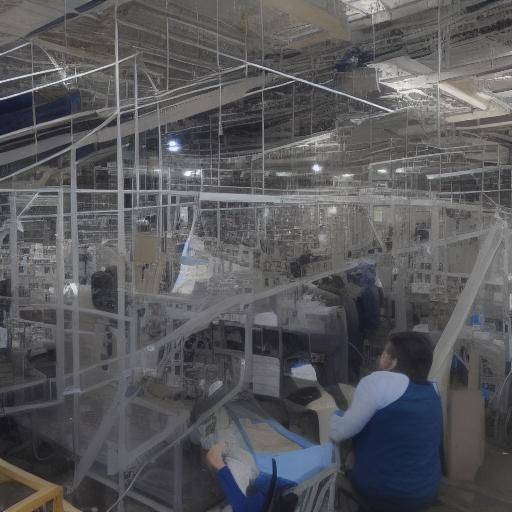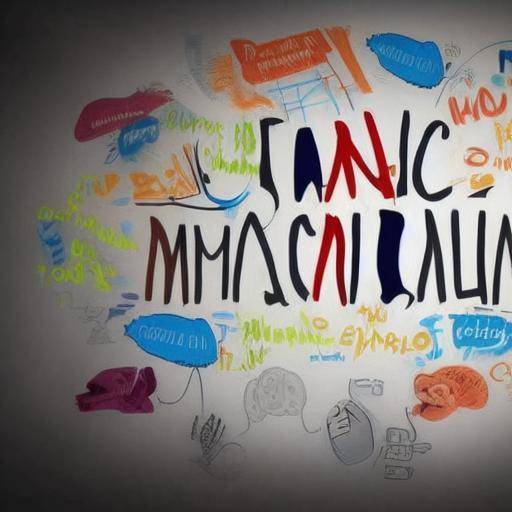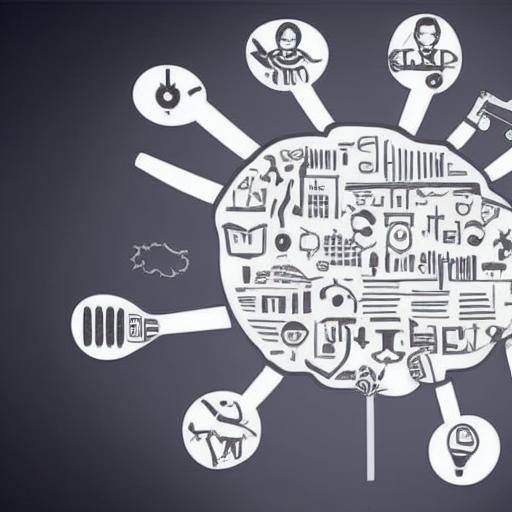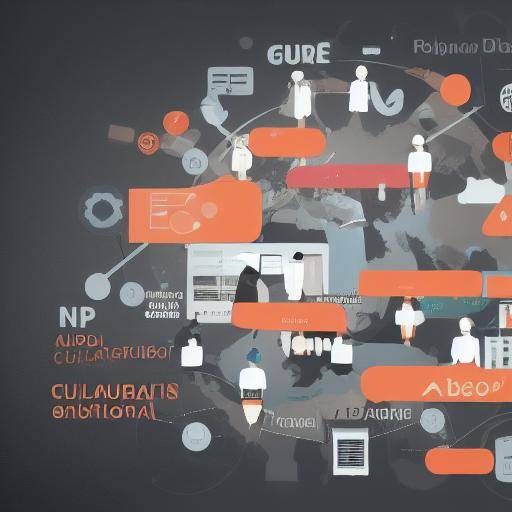
Introduction
We live in a constantly changing world, and the working environment is no exception. The ability to adapt to new situations, challenges and demands is more crucial than ever. In this article, we will explore in depth the importance of adaptability in a changing working environment as well as the mental flexibility that this entails. We will discover how adaptability can enhance professional success and job satisfaction, and provide practical advice to develop this skill. Prepare to explore a vital issue in the current world of work.
History and Background
Adaptability in the working environment has deep roots that go back to the industrial revolution. Initially, the industry demanded specific and repetitive skills; however, over time, the nature of the work has evolved into more complex and multifaceted roles. The modern era has enshrined adaptability as an essential skill in any working environment, being valued by both employers and employees.
Throughout history, significant episodes have driven the need for adaptability. For example, the 2008 financial crisis forced many companies to re-evaluate and reinvent their operations, giving rise to an even greater emphasis on adaptability and mental flexibility. It is clear that this capacity is not only useful, but has become an indispensable requirement for survival and success in the current working environment.
Deep analysis
Adaptability in the working environment entails a number of benefits for both workers and organizations. On the one hand, it allows employees to face challenges effectively, promoting problem solving and developing new skills. It also contributes to the creation of more positive and collaborative work environments, promoting a sense of adaptability at the organizational level.
However, being adaptable is not without challenges. The need to adjust constantly to new situations can generate stress and anxiety in some individuals. Fortunately, there are strategies to mitigate these challenges, such as the development of a growing mentality and the search for adequate support and training.
At present, adaptability has become a topic of great relevance, especially with the advent of digital transformation and globalization. These phenomena have redefined the nature of work, creating the need for an adaptable, innovative and agile workforce.
Comprehensive review
In considering adaptability in the working environment, it is crucial to analyse its practical application and best practices. Organizations that foster adaptability often invest in training and development programmes that promote resilience, agility and sacrifice capacity, which in turn contributes to more dynamic and responsive working environments.
On the other hand, comparisons between adaptive approaches are also enlightening. In some industries, such as technology, the ability to rapidly adapt to new technologies and methodologies is critical, while in other sectors the ability to anticipate and prepare for future changes is more proactive.
Comparative analysis
Adaptability, mental flexibility and the working environment are interrelated but different concepts. While adaptability focuses on the ability to adjust to change, mental flexibility involves opening up to new ideas and approaches, and the working environment encompasses the specific context in which these skills are manifested.
Specific examples of these dynamics include the process of adapting to a new hierarchy in the working environment, the ability to flex working hours to reconcile personal and professional life, as well as the ability of leaders and managers to adapt to evolving global and economic dynamics.
Practical Tips and Accessible Tips
To promote adaptability and mental flexibility in a changing working environment, it is essential to develop a growing mentality. This implies being open to learning new skills, seeking constant feedback and abandoning the mentality of "we have always done so." In addition, the effective management of time, the establishment of realistic goals and the adoption of self-care habits are key to maintaining adaptability on a daily basis.
Practical advice:
- Promote continuous learning through vocational training and development.
- Practice effective time management and prioritize significant tasks.
- Cultivate resilience through positive approaches to challenges.
- Establish clear and flexible goals that meet changing circumstances.
- Find support and feedback to strengthen adaptability skills.
Industry Perspectives and Expert Reviews
Industry leaders and experts have valuable insights on adaptability in the working environment. Some emphasize the importance of fostering an organizational culture that anticipates innovation and change, while others highlight the need to balance stability with the ability to adapt constantly.
According to recent studies, organizations that promote adaptability tend to be more innovative and competitive in the market. Adaptable minded leaders are able to effectively navigate through changing contexts, inspiring their teams to do the same.
Cases of Study and Applications in Real Life
The impact of adaptability is reflected in many cases of study in different sectors. For example, companies that have managed to adapt quickly to market demands have experienced significant growth, while those that have underestimated the importance of adaptability have faced difficulties in maintaining their relevance. In addition, the ability to adapt to new models of work, such as teleworking, has been crucial for the continuity of many organizations during the pandemic.
Future Trends and Predictions
In a constantly changing world, adaptability will continue to be a determining factor in working success. With the advancement of artificial intelligence and automation, new skills and working approaches will be needed, which will require even greater emphasis on adaptability and mental flexibility.
Moreover, the evolution of globalization and socio-economic dynamics will continue to impact the nature of work, generating the need to adapt to increasingly diverse and changing contexts. Being prepared for these emerging trends will be critical to maintaining professional relevance in the future.
Conclusion
In short, adaptability and mental flexibility are essential skills in the current working environment. Its importance lies in its ability to enhance individual and organizational success, as well as to boost innovation and resilience. By developing an adaptable mentality and embracing change proactively, both individuals and organizations can thrive in a constantly evolving working world.
Finally, it is crucial to remember that adaptability is a skill that can be cultivated over time, and that ultimately leads to greater adaptability and satisfaction at work.
Frequently asked questions
**How can I develop a growth mentality to foster adaptability?**Developing a growing mentality involves being open to learning new skills, seeking constant feedback and abandoning the mentality of "we have always done so." By fostering curiosity and willingness to experience, the ability to adapt to new situations can be strengthened.
**What are the most common challenges in trying to be more adaptable in the working environment?**Some common challenges include fear of change, resistance to quitting routine and sense of loss of control. Overcoming these challenges requires practice, patience and skills development such as resilience and stress management.
**What role does adaptability play in managing change in organizations?**Adaptability is fundamental in the management of change, as it allows organizations and their partners to adjust and thrive in constantly evolving environments. By fostering adaptability, organizations can minimize resistance to change and maximize the effectiveness of transformation initiatives.
**How does adaptability influence effective leadership capacity?**Leaders with adaptability skills can effectively navigate through changing contexts, inspiring their teams to do the same. Adaptability in leadership promotes innovation, agility and a sense of security in times of uncertainty.
**Is it possible to develop adaptability at any stage of working life?**Yes, adaptability is a skill that can be developed at any stage of working life. Although it is more common to associate it with the first years of career, the ability to adapt to new challenges remains relevant and valuable throughout the entire career.
**How can I identify opportunities to be more adaptable in my working environment?**Identifying opportunities to be more adaptable begins by recognizing areas where resistance to change is experienced or difficulties in adjusting to new situations. Observing work dynamics and seeking feedback from colleagues and superiors can provide clues about where and how to practice adaptability.
**What are the long-term benefits of fostering adaptability in the working environment?**Long-term benefits include increased individual and organizational resilience, increased capacity to meet and overcome challenges, and faster and more effective adaptation to new opportunities. Ultimately, fostering adaptability promotes greater sense of safety and control in constantly changing working environments.
This article was designed with the intention of providing a holistic view of adaptability in the working environment and fostering its development as an essential skill in the current working world. By providing detailed information, practical advice, perspectives of experts and specific applications, readers are sought to be equipped with the tools necessary to thrive in changing working environments. Adaptability is a fundamental competition to successfully address professional challenges and promote personal and organizational growth.








































